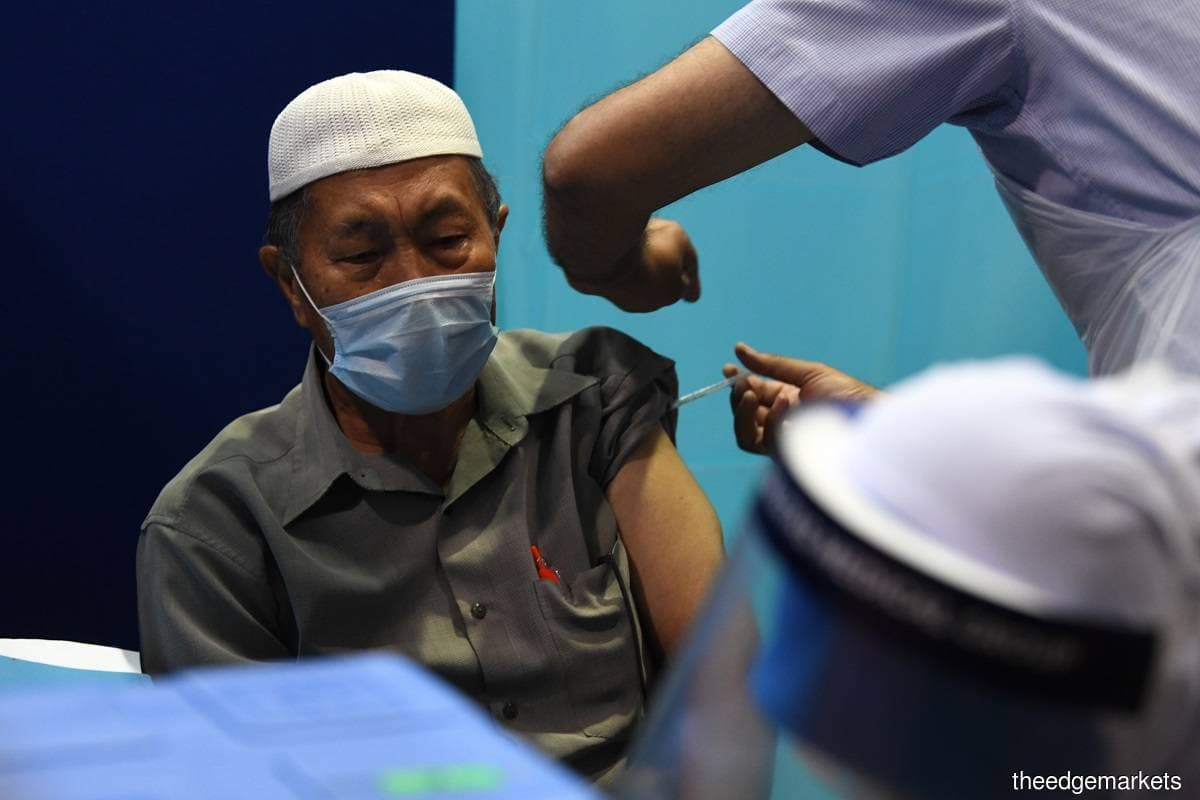
KUALA LUMPUR (May 11): Despite monetary and mental hardship owing to social distancing measures to curb the Covid-19 pandemic, more than a third of Projek Perumahan Rakyat (PPR) folks remain unwilling to be inoculated despite the vaccine being provided free by the government.
That there is a high level of Covid-19 vaccine hesitancy among this group, with only 63% willing to be vaccinated for Covid-19 compared with a 93% approval rate for vaccines in general, is among areas of concern noted by researchers in the "Families on the edge" report (Part 4) by the United Nations Children's Fund (UNICEF) and United Nations Population Fund (UNFPA). The research was conducted in partnership with Malaysia-based public policy research outfit DM Analytics.
Twelve per cent of those surveyed said "No" to the Covid-19 vaccine while 25% said they were "unsure", with concerns largely surrounding fear over side effects and efficacy of the vaccine. Among those who were not sure, only 5% were pregnant or had other diseases. Only 15% who said "No" doubt the ingredients of the vaccine while 8% thought they do not need it.
"Failure to address vaccine hesitancy among low-income communities offers the concerning prospect of persistent pockets of vaccine transmission coinciding with pockets of poverty, with the two phenomena potentially reinforcing one another," the UN agencies said in a statement.
The vaccine hesitancy is despite one in four not being able to afford a new face mask for their children on a daily basis, only 60% finding TV education programmes helpful and 82.5% of them wanting their children to return to school instead of replying on online learning because conditions are simply too challenging for effective learning from home.
Some 49% said their children are not able to concentrate at home because there is no place to study while 43% said they could not supervise their children's learning and believed that their children needed face-to-face interaction with teachers.
Only 35% had access to a computer (29%) or tablet (5%) for home learning, with 88% relying on a shared smartphone, the survey findings showed. Of the 38% who said education TV did not help, 43% said it was because the programmes were difficult for children to understand, 17% said the subjects available were not suitable for their kids, while 16% said they were not interesting.
Read also:
One year after MCO 1.0, 71% PPR folks still need consistent cash aid — UN study
Tok Pa: Govt must be cognisant of nutritional intake, access to education for children from low-income families
PPR folks want income-generating breaks but still need aid — UN study
It just takes RM900 a month to lift urban poor out of absolute poverty
80kg of rice sent to one 'makcik' shows better coordination of aid needed

